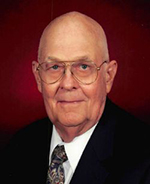• The BaptistWay lesson for Aug. 4 focuses on 2 Samuel 13:1-2, 20-22, 30-37; 14:21-24; 15:7-14; 18:6-15, 33.
The Game of Thrones, by George R.R. Martin, captivates readers with its fantasy world filled with intrigue, violence and death. Those who manage to navigate all five books find themselves tangled in complex web of political battles for power. Sex, violence, incest, betrayal, murder, injustice and heroism all happen within the pages. And characters die. Many, many characters die.
David’s story also is a game of thrones. Beginning in 1 Samuel 11, the story of David and Bathsheba and concluding in 1 Kings 3, the account is filled with rape, murder, incest, betrayal, injustice and political intrigue. And many, many characters die. What makes this biblical game of thrones so horrifying is that it is crammed into a few chapters rather than five lengthy novels. And it is a sordid tale.
The heir apparent
David’s first four sons were Amnon (the firstborn), Chileab (a son who apparently died in childhood because he never appears in the story), Absalom and Adonijah. Each of these sons was by a different mother. Amnon’s mother was Ahinoam. Chileab’s mother was Abigail. Absalom’s mother was Maacah, who also was Tamar’s mother. And Adonijah’s mother was Haggith (2 Samuel 3:2-4).
Because Amnon was firstborn, he was the heir apparent to David’s throne. However, he fixated upon his half-sister Tamar (2 Samuel 13:1). Like his father, he was prone to lust. In fact, he wanted her so badly he made himself ill because he could “do nothing to her” (v. 2). A family friend, Jonadab, suggested Amnon make use of his “illness.” “Get David to send Tamar to you to nurse you back to health,” he suggested (vv. 3-5). And Amnon did (v. 6). And while he had Tamar in his house (vv. 7-10), he raped her (vv. 11-14) and then forcibly cast her out (vv. 15-19).
Readers may not understand why Tamar argued with Amnon that forcing her out was even worse than raping her (v. 16). But the harsh reality in Old Testament days was that when a woman was raped, if her rapist refused to marry her, then she was destined to a desolate future. No one else would marry her (Deuteronomy 22:28-29).
By casting Tamar out, Amnon refused to take responsibility for his actions. This is why the narrator says Tamar lived in the house of her full brother, Absalom, as a ruined woman (2 Samuel 13:20).
David’s inaction
Sign up for our weekly edition and get all our headlines in your inbox on Thursdays
But David did nothing (v. 21).
In the vacuum of David’s leadership, Absalom took action. He told Tamar to keep silent (v. 20), which may or may not have been an admirable thing. Absalom may have been comforting her and indicating he would enact justice since David had failed to do so. Or Absalom may have been silencing her and preventing her from taking her case to the city gate. In other words, Absalom may have used her rape as an excuse for vigilante justice in order to open his way to the throne. After Amnon, Absalom was next in line.
Regardless, Absalom bided his time. Two years later, he held a party and invited all David’s sons, including Amnon. During the party, Absalom ordered his men to kill Amnon once he was good and drunk (vv. 23-29). Like David (2 Samuel 11:14-15), Absalom did his killing by proxy.
Initially, a report came to David telling him Absalom had killed all his sons (2 Samuel 13:30). But then Jonadab re-enters the story, consoling David by telling him only Amnon was killed; all his other sons were safe (vv. 32-33). But this did not comfort David. David was devastated. His favorite son was dead (vv. 36-37).
Absalom forced to flee
Unlike Amnon, Absalom did not receive forgiveness. Instead, he was forced to flee (v. 37). He stayed in Geshur several years as an exile waiting for David to do something. Only because of Joab’s intervention did David agree to allow Absalom to return to Jerusalem (14:1-22). But when Absalom returned, David refused to see him for two years (vv. 24, 28). And even after Absalom was allowed in David’s court, the king’s cold manner indicated he never really forgave his son (v. 33).
So Absalom, once again, took matters into his own hands. He stood at the city gate and campaigned four years. When people came to Jerusalem, he told them they would find no justice there (2 Samuel 15:1-6). Why should they? Absalom hadn’t. Thus, he “stole the people’s hearts” (v. 6) and became so popular he was crowned king in David’s old capital, Hebron (vv. 7-12). He marched on Jerusalem with his army, and David fled, leaving only one spy and his 10 concubines in the palace (vv. 13-16, 32-37).
When Absalom arrived, the first thing he did was sever the relationship between himself and his father by pitching a tent on the rooftop of David’s palace and raping David’s concubines (16:20-22). I warned you this story is sordid. By having sex publically with David’s harem, Absalom not only claimed the throne but also destroyed any hope of reconciliation between himself and his father.
A tragi-comic end
Prior to the battle between Absalom and David’s forces, David instructed his commanders to “go easy on the boy, Absalom” (18:5). This is the first indication David felt any sort of concern for his son. The armies fought, and Absalom’s army was defeated (vv. 6-8). He fled on a mule, pursued by Joab’s men. In a tragically comic twist, Absalom’s Samson-like hair got caught in some trees. Dangling there defenseless, Joab’s men came upon him (vv. 9-10). They heeded David’s orders and did nothing to Absalom (vv. 11-13). But, in perhaps his greatest betrayal of David, Joab thrust three swords into Absalom’s heart (v. 14). The rebellion died along with David’s son.
When David received the report, he cried out: “O Absalom! My son, my son! Would that I had died instead of you!” (v. 33). Of course, this may be the heartbroken cry of a father who finally internalized the tragedy of his mistakes. Or these may be crocodile tears. David was always good at mourning his enemies (2 Samuel 2:17:27; 3:31-34).
David’s game of thrones doesn’t end with Absalom. In the first chapter of 1 Kings, more intrigue takes place with Adonijah (third in line for the throne) claiming the kingship. But Nathan and Bathsheba pulled off a coup to place Solomon on the throne instead (1 Kings 1:1-53). In chapter 2, David, from his deathbed, gives Solomon a hit list (vv. 5-9). It’s hard not to picture David as Marlon Brando in this scene, but that would be mixing The Godfather with Game of Thrones, and there’s probably some rule against that.
Horrible mistakes
So, what do we do with all this? David is supposed to be “a man after God’s heart.” How could things go so disastrously wrong in his life? Well, it’s clear David made horrible mistakes, and those mistakes affected those around him. He played favorites with Amnon and wound up with a selfish, lustful son who thought he was above the law. Anyone hear echoes of 2 Samuel 11? He refused to enact justice for Tamar and wound up with an angry son who took revenge into his own hands. He failed to forgive Absalom and drove a wedge so deep son and father never could be reconciled. He refused to name a successor and created a tangled situation that resulted in the death of his third son, Adonijah (1 Kings 2:22-25).
Obviously, David’s sons made their own choices. So, we shouldn’t conclude from this story that when children go bad, it’s automatically the parents’ fault. Perhaps what we should glean from this story is when opportunities for transformation come, we should take them. How would David’s game of thrones been different had he punished Amnon for the rape of Tamar? Or had he forgiven Absalom and brought him home right away? Or had he clearly named a successor to his throne instead of leaving his family in the dark?
As we think about our own lives and our own families, what opportunities for transformation have we failed to act upon? Do we need to confront someone? Do we need to forgive someone? Have we created tensions in our families that could be resolved if only we were to speak up? If we are playing games, how can we end them peacefully?













We seek to connect God’s story and God’s people around the world. To learn more about God’s story, click here.
Send comments and feedback to Eric Black, our editor. For comments to be published, please specify “letter to the editor.” Maximum length for publication is 300 words.